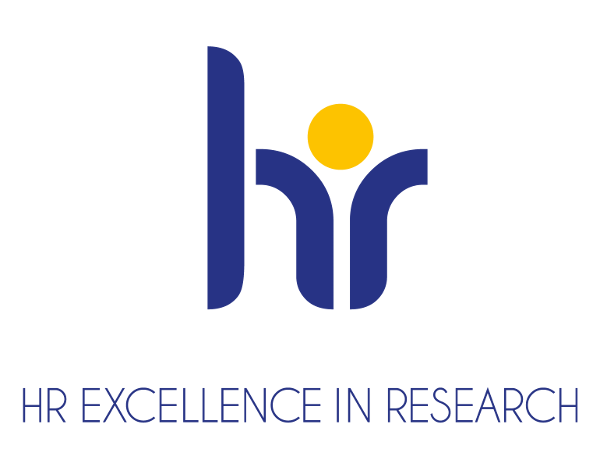Open Science SBA research support
If you need more information on this topic write to openscience@unive.it or contact your library:
ricercabali@unive.it, ricercabas@unive.it, ricercabaum@unive.it, ricercabec@unive.it
Open Science means making all steps in the research cycle open, sharing data, publications, tools, results, methodologies, infrastructures and good practices.
Open Science is a broad concept that includes every aspect of research, including Open Access to publications (articles, conference proceedings, books or book chapters).
Ca' Foscari encourages and promotes open access to publications and data, the reusability of research results, and is committed to providing the infrastructure and developing the skills necessary for the dissemination of Open Science. To this aim it has adopted the following policies:
Open Science Policy
The Open Science Policy provides guidelines on how to integrate Open Science good practices at all levels into the scientific research process with particular attention to:
- research outputs (data, publications, software, teaching materials)
- research methodology (reproducibility, replicability, transparency, effectiveness, integrity of scientific research).
| Open Science Policy | 114 K |
Research Data Management Policy
The University is committed to collecting, archiving and preserving data according to the highest standards and international good practices to guarantee the quality and integrity of scientific research. The policy aims to:
- describe the principles for the correct management of research data, according to the principles of Open Science
- identify the roles and responsibilities in the data management process.
Open Science Promotion Plan
Ca' Foscari University of Venice supports the dissemination of Open Science.
The Library System, in line with the University strategies, develops a three-year training plan with the aim of supporting the University Open Science Policy for PhD students, researchers and lecturers.
The training sessions are in Italian. The updated list can be found at the webpage Scienza aperta [ITA].
The training courses are part of Human Resources Strategy For Researchers (HRS4R), certification obtained by the University which is one of the "HR Recognized Institutions".
The main purpose of the strategy is to improve labour condition for researchers working at Ca’ Foscari, as well as the university attractiveness for talents.

Principles of Open Science
- Knowledge is a common good: if research is publicly funded, open science is a duty to citizens
- Sustainability, collaboration, sharing and inclusion must be the pillars on which research is based
- Open science promotes research ethics, understood as transparency in the process of producing scientific results
- Research results (data and publications) must be managed and distributed according to FAIR (Findable, Accessible, Interoperable, and Reusable) principles that enable their discovery, access, interoperability and reuse by other researchers
- Open science encourages the circulation of knowledge and cooperation between science and civil society, so-called Citizen Science. By sharing skills and knowledge, businesses, universities and citizens become part of the same innovation process, fostering economic growth and the transformation of research results into products and services with benefits for society as a whole.
Citizen Science is an aspect of Open Science that is gaining increasing prominence, with the aim of making science an increasingly participatory, inclusive and transparent process where motivated citizens, albeit not experts, are actively involved in scientific research (observations, data collection, measurements, analysis, communication of results).
The transparent and immediate sharing of research results makes it possible to transform knowledge into products and services, which is the underlying principle of Open Innovation, i.e., an approach that the European Commission considers strategic for economic and cultural growth with clear benefits for all players involved (funding bodies, companies, universities).
In order for Open Science to effectively become the new research standard, the European Commission is aiming at implementing the European Open Science Cloud (EOSC), a technological ecosystem based on existing infrastructures whose objective is to provide researchers, innovators, companies and citizens with a federated and open multidisciplinary environment in which they can publish, find and re-use data, tools and services for research and innovation.
Useful tools for Open Science
S-légami!
"S-légami!" Open Access - Manuale d'uso per i ricercatori [ITA] (User's Guide for Researchers) is the handbook collecting the answers to the 100 most frequently asked questions by researchers on Open Science – the result of the collaboration of the APRE Working Group dedicated to Open Science, Open Access and Open Data.
open-science.it
open-science.it is a new portal dedicated to Open Science and Open Access to the results of scientific research, where you can find general information, training material, news and updates, news of events related to the Open Science movement with an international perspective and a specific focus on Italy.
Specific resources are provided for different types of users: researchers, research organisations, funding bodies, citizens.
AISA: Dictionary of Open Science
The Dizionario della scienza aperta [ITA] (Dictionary of Open Science) is an initiative of AISA (Italian Association for the Promotion of Open Science), created with the aim of periodically publishing short informative entries on the vocabulary of Open Science also in order to counter inaccuracies and falsehoods about the world of open knowledge.
The first entries published are about hybrid journal, double dipping, transformative agreements, right of republication, open, openness.
National Open Science Plan
Published by the Italian Ministry of Universities and Research, the plan [ITA] lays the foundations for the full implementation of open science in Italy and is presented as a policy document that urges Italy to guarantee open access to research production tools, to support the open-source of calculation codes, and to ensure that all researchers have access to the necessary calculation services. Its objectives include developing transparent processes, enhancing research activity, verifiability and integrity of results, and proper scientific communication.
Last update: 30/01/2026

